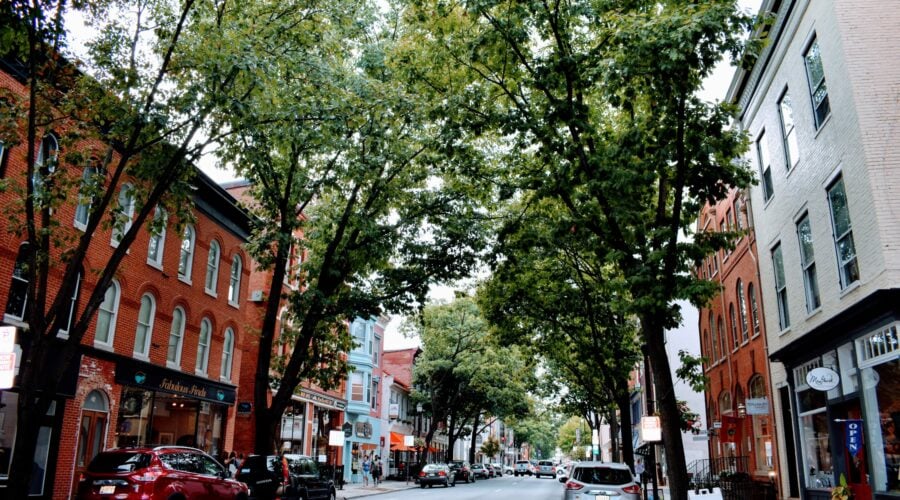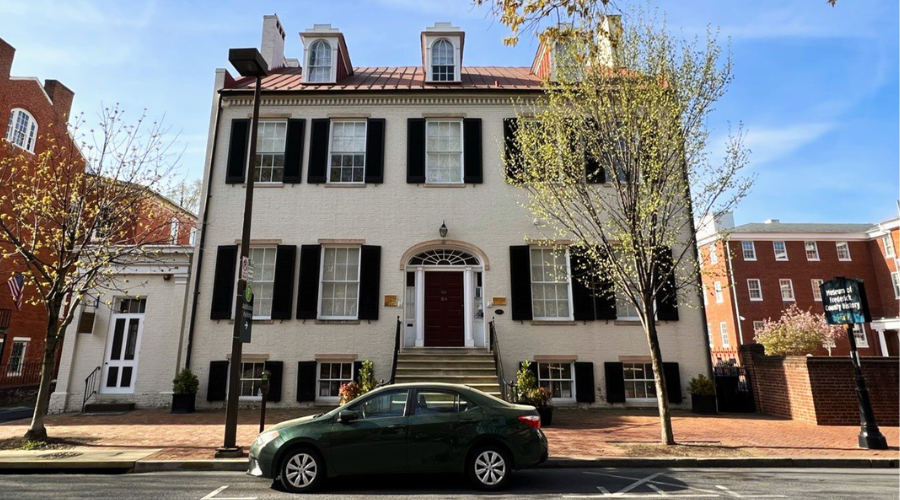
I grew up in Hagerstown, Maryland. As a teen, I would pass the beautiful old Victorian homes as I walked the train tracks on my way to North High. When I had a few extra dollars, I bought baseball cards at Joe’s Card Shop. His shop was on the first floor, his apartment was on the second.
These days, my family and I live south of Hagerstown in Frederick, Maryland. We love walking Market Street and the Promenade and going into the shops. The historical society has done an excellent job creating a mercantile area with small-town American charm.
I have seen Hagerstown and Frederick change over the past few decades. But now, as an insurance agent, I see not only these towns’ unique charms but also have a perspective on the insurance challenges that come with them. Here are 11 challenges you may face when purchasing insurance in towns like Frederick and Hagerstown.

Older Buildings:
Insurance companies decide whether to insure a structure based on the age of the building and what is inside. For example, an insurance company may insure an apartment building if constructed after 1990 but not before. Insurance companies also want to know if the utilities have been recently updated. They are looking for updates to your plumbing, electrical, HVAC, and roof. Not all older buildings have been well maintained.
Historical Societies:
Both Hagerstown and Frederick have active historical societies dedicated to preserving the heritage of their communities. Historical societies have expectations about how you will maintain your building, inside and out. It can make the construction process expensive and lengthy. This means you should consider higher insurance limits. It also means there will be fewer insurance companies interested in you.
Buildings Repurposed for Different Uses:
Older buildings in Hagerstown and Frederick are frequently repurposed for uses different from their original construction. For example, a historic home may be converted into a bed-and-breakfast or office space. When insuring such properties, your policy must reflect the current use and occupancy of the building. Commercial and residential insurance needs can differ significantly, so accuracy in policy details is essential.
A store on the first floor and an apartment on the second:
Insurance companies call this mixed occupancy, and it presents a life safety risk. If there is a fire on the first floor, how do the tenants on the second floor exit the building? This makes many insurance companies cautious to insure these kinds of facilities.
Rural Locations:
As much as Frederick and Hagerstown have grown, I’m still awestruck that you can drive 15 minutes outside town and find open farmlands. This means many properties are more than 5 miles from a fire department, and some don’t have a fire hydrant nearby. This makes insuring the property more difficult.
Businesses Operating in Multiple States:
In an era of expanding markets and digital connectivity, many businesses in Hagerstown and Frederick operate across state lines. It’s common for a plumber or electrician to do business in Maryland, Pennsylvania, Virginia, and the District of Columbia. (I’m amazed how they find room on the side of their trucks to print all their licenses!) This means your insurance company needs to extend into all the states you operate in.
Vehicles Driving into Dense Metropolitan Areas:
Hagerstown and Frederick are close to major metropolitan areas like Washington, D.C., and Baltimore. This creates several insurance and risk management challenges when it comes to vehicles. Your drivers are more likely to be in an accident and hit by uninsured vehicles. It also becomes challenging to track where they are going and whether they stay on the correct route.
Long Commutes to Work:
With the availability of employment opportunities in nearby urban centers, many Hagerstown and Frederick residents endure long work commutes. This extended time on the road can increase the risk of accidents. Adequate auto insurance coverage is essential to protect against the unique commuting-related dangers in the area.
Metropolitan Areas with Complicated Legal Issues:
For businesses that operate in or serve metropolitan areas with complex legal issues, such as Washington, D.C., it’s essential to have comprehensive liability coverage. My office has worked with numerous accounts that operate inside the District. The insurance requirements can be extensive.
Increasingly Diverse Populations:
Hagerstown and Frederick have experienced population growth in recent years, leading to greater community diversity. This demographic shift can impact insurance needs, as different cultural backgrounds and languages may require tailored communication and service options. Insurance providers that understand the evolving demographics can better serve the community’s unique needs.
Insurance Broker Consolidation in the Region:
The insurance industry is subject to ongoing consolidation, with larger brokerages acquiring smaller ones. This consolidation trend can affect the availability of insurance options and the level of personalization offered to clients. When purchasing insurance in Hagerstown and Frederick, it’s essential to work with a reputable and knowledgeable broker who is well-versed in the unique challenges and opportunities the local insurance landscape presents.
Conclusion:
I love the Hub City, and I love Frederick. The interconnected world gives both communities great opportunities to grow. Yet, from an insurance perspective, both need local insurance agents who know the region and how to navigate the unique blend of rural, small-town, and urban challenges they face. Having an insurance broker who understands all this can make the insurance buying process much less complicated.
Further Reading

In Memory of Harold Henry
It is with deep sadness that we share the news of the passing of Harold Henry, former president of Bitner Henry Insurance and father of Stephen...

Real Estate and Supply Chain Turbulence. How Does It Impact Your Insurance?
Since March of 2020, there has been so much instability in the real estate marketplace and supply chain channels that it can make a person’s head...

